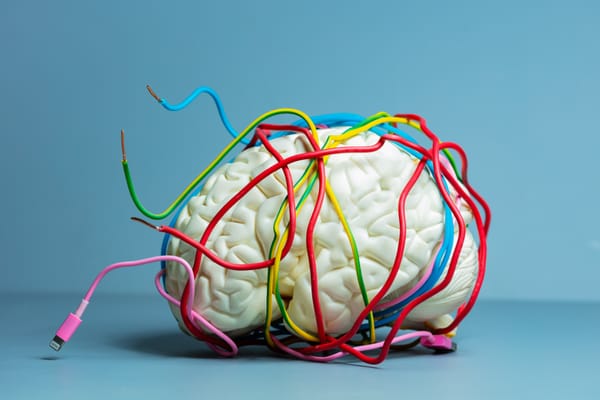The Emotional Side of Weight Loss: Navigating the Mental Journey with Ahvina

This topic focuses not only on the mechanical process of weight loss but also on the personal and emotional changes that occur during the process. As you begin this journey with semaglutide or tirzepatide, you are probably noticing some noticeable changes in your body and daily routine. While these medications work to help you lose weight, it is equally important to look at the psychological and emotional components of such changes.
In this post, we’ll be exploring mental health during weight loss, including how to handle low motivation, how to practice self-compassion, and how to handle the emotional aspects of your journey. Let’s take a deep breath together and look at the emotional aspects of this transformative process.
1. Understanding the Emotional Rollercoaster
Weight loss is not an always-upward curve. It’s typical to have high moments when you are proud of your progress and low moments when you feel discouraged or overwhelmed. These are rather normal emotional changes.
It’s important to recognize that these feelings don’t mean you’ve failed—they just mean you’re human. The process of achieving good health and weight control may include traveling through the valleys of fear, anger, and negative thinking. Here are a few things to remember when you’re in those emotional dips:
- Progress is not linear: Some days you will feel like you are winning, and other days, you may feel like you are moving backwards. This is the process, and it is crucial to look at the long-term results.
- Patience is key: Healthy, sustainable weight loss takes time. Semaglutide and tirzepatide are GLP-1 medications that can help with your weight loss, but the mind and patience play a role as well.
2. If you are losing motivation: How to go back to the right path?
Loss of motivation is a common phenomenon, not uncommon especially in the first few weeks or months of a weight loss diet. GLP-1s can be a good tool, but no medication can maintain by itself. You will have to try to come up with ways that you can keep on coming up with ways to maintain motivation time and time again. Here are a few strategies to help:
- Set small, achievable goals: When it feels like the big goal is too far away, break it down into smaller, more tangible objectives. It could be to design to eat healthily for the rest of the week or to try to meet a different target for this week. Celebrate each of these wins!
- Remember your ‘why’: When motivation dips, go back to the reasons that made you embark on this journey. Do you want to be healthy? To have more energy? To be able to do things you love without pain? Your purpose can help you get your motivation back on track.
- Create a support system: It helps to have people who can support and encourage you, and at times, give you direction. Sometimes, all people need is someone to listen and give advice on a certain situation that can help boost morale.
3. Self-Compassion in the Journey: How It Helps
One of the best things you can do for yourself on your weight loss journey is to practice self compassion. Stumbling is a part of the process and it is paramount that one practices self-kindness as much as one takes in good food or engages in physical activity.
- Don’t beat yourself up: Weight loss is usually not without some relapses such as missing a work out or eating a meal that is not planned for. Instead of being hard on yourself, reflect on it, apologize to yourself and keep it moving.
- Be mindful of negative self-talk: Listen to your internal dialogue. Would you talk to a friend the way you talk to yourself? You shouldn’t. We need to treat ourselves with the same kindness and respect as we would offer a friend. Positive affirmations can have a significant impact on mental health and self-esteem.
- Celebrate small wins: It’s rather simple to concentrate on what you have not achieved yet, but strive to recognize and appreciate the progress you have made no matter if it is a few pounds, one week of sticking to your plan, or even if you just feel better in the mirror.
4. Mental Health and GLP-1s: What You Should Know
With GLP-1 medications, you can lose weight, but weight loss is not the only aspect of the solution. GLP-1s may assist you in managing emotions by decreasing hunger and supporting your adherence to the diet. Nevertheless, these medicines are not the solution to mental health issues like anxiety, depression, or body image issues.
If you are feeling emotionally tired or if you are struggling with mental health issues, seek help from a professional. You can turn to therapy, meditation, or even speaking to a person you trust to help you deal with these difficulties while you are on your weight loss plan.
5. Focus on Your Overall Well-being
Weight loss is a great goal, but it is not more important than your general health. Since mental health is as important as physical health, it is important to find a balance between the two in order to achieve long term results.
Here are some tips which can help in improving the mental and emotional health:
- Learn to practice mindfulness or meditation
- Do things that make you happy
- Make sure to set some time for resting and taking care of yourself
- Spend time with family, friends, or a support group
Wrapping Up: Building Your Mental Strength
This is where things get a bit emotional when talking about weight loss on GLP-1s, but it’s also beautiful. You will be better prepared to cope with the fluctuations in your weight loss process by being more patient, having the right motivation, and being kind to yourself. GLP-1 medications are a good tool, but it is your mind, emotional solidity, and support system that will sustain you.
As for now, though, remember that the end result is not simply the number on the scale, but rather the person you are becoming.
References:
- Gedal, S., et al. “A Comprehensive Review of GLP-1 Agonists for Weight Management.”
- Mayo Clinic. “Weight Loss and Mental Health.”




